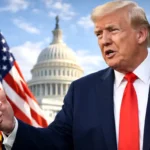Key Points
- FDIC advised banks to pause direct crypto activities but not to sever ties with crypto firms.
- Coinbase has accused U.S. regulators of trying to isolate the crypto industry.
- Internal memos distinguish between direct crypto engagement and traditional services for crypto clients.
- FDIC Chairman reiterated the agency’s focus on monitoring banks’ direct involvement in crypto.
The Federal Deposit Insurance Corporation (FDIC), a U.S. bank regulator, advised banks to pause direct involvement in cryptocurrency-related activities between 2022 and 2023. However, newly released documents indicate that banks were not explicitly ordered to cease providing services to crypto companies, contradicting claims from the cryptocurrency industry about widespread “debanking.”
The documents, released on Friday, emerged following a legal battle initiated by History Associates Incorporated, a research firm working on behalf of Coinbase. The firm sued the FDIC to disclose supervisory “pause letters” sent to unidentified banks. While an initial set of letters was released in December, a judge directed the FDIC to resubmit them with fewer redactions. The updated release includes 25 letters, two of which were not part of the original submission.
Coinbase’s Chief Legal Officer, Paul Grewel, said the less-redacted letters reveal what he described as a coordinated effort to hinder various crypto activities. He called for Congress to investigate the matter further. In 2022, the FDIC published an internal memo outlining its approach to evaluating banks’ involvement in cryptocurrency activities. The memo highlights the agency’s cautious stance, citing risks related to scams, market volatility, and bankruptcies in the crypto sector.
The letters and memo offer insight into the FDIC’s supervisory processes, which differentiate between banks engaging directly in crypto activities, such as custody of crypto assets, and providing banking services like lending or deposit accounts to crypto firms. The former category was subject to more rigorous scrutiny. FDIC Chairman Martin Gruenberg clarified in December that the agency does not “debank” crypto firms but closely monitors direct crypto involvement by banks due to potential risks to financial stability and consumer protection.
These revelations come ahead of President-elect Donald Trump’s anticipated crypto policy overhaul. Reports suggest that his administration plans to issue an executive order, possibly on January 20, urging regulators to be more lenient toward the crypto sector.





